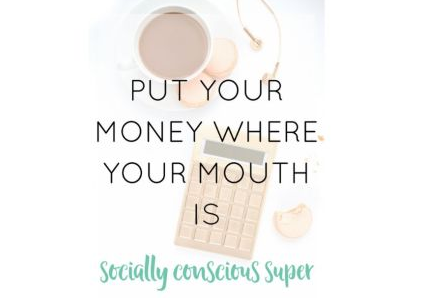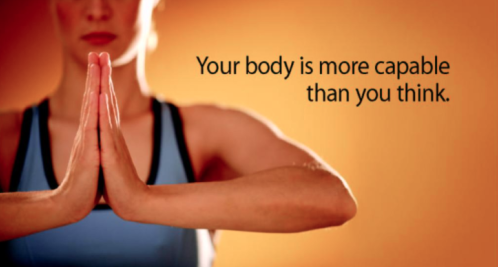In last month’s article we established that no matter your beliefs about the what, how or why, there is no doubt we currently live in a toxic environment. We offered insights and ways to eat healthier food, use cleaner personal care and household products, and be mindful of your clothing. Today we’ll continue this topic by delving further into the household, building and environmental aspects.
Kitchen :: It’s amazing to discover how many toxins and contaminants can be found in the average household environment. In the kitchen alone, we want to be cognizant of what we’re cooking and storing our food in. For pots and pans, avoid Teflon and any other chemical non-stick coatings. Teflon is made using PFOA which is a likely human carcinogen. When heated, all of the non-stick cookware emit fumes that can kill birds, so you don’t want to imagine what those fumes are doing to your insides. Be careful with aluminium, when used for cooking it can seep measurable amounts into food. Aluminium has been linked to brain disorders and behavioural abnormalities. The safest options for cookware and bakeware are ceramic (for example X-trema), cast iron, stoneware, and if you can afford it, Le Creuset, glass, and high quality grade stainless steel. Use wooden, bamboo or stainless steel cooking utensils, and avoid plastic like the plague. When it comes to food storage, again avoid plastics that leach BPA’s and other toxic chemicals into the food. Instead opt for glass, stainless steel, food grade silicone, or check out New Zealand company Sistema that offer a range of BPA and Phthalate free plastic containers all over the world. I’ve spoken about this in past articles, but find a high quality water filtration system to filter your tap water for drinking and cooking. I personally use Structured Water for many reasons, but there are a number of different systems available. I’m also a fan of Crystal Quest and New Wave Enviro here in the US as basic water filtration systems. Avoid Brita filters, unless you’re using an additional filtration or structuring device along with. The reason being, although they’re popular due to good marketing, they filter a very limited amount of particulate and many of the toxins remain in the water.
Bed/Bath :: Of equal importance to clean filtered drinking water is clean filtered bath and shower water. The skin is the body’s largest organ and we absorb the most water while in the bath or shower. Almost all manufacturers of water filtration systems will offer a shower filter option, usually at a fairly inexpensive price, so highly worth the purchase. Also if you live in a city or urbanized area, I recommend putting an air filter in your bedroom at least. As this is the place we spend many hours sleeping and resting, it’s important to have clean high quality air to breathe. I use Germ Guardian and recommend it. Or consider adding certain Indoor Plants that remove toxins in your home. If you live in the country, by the sea or in a town where the air quality is good, you could simply leave your windows wide open during the day and let the clean air circulate. Bedding is another hugely important aspect to consider. If you can afford to get an organic mattress, this is ideal. Or for cheaper options try an organic Bamboo, natural Latex, or Wool mattress topper. Organic cotton Mattress Protectors are a great addition to protect from dust and mite allergens. Avoid going tempur-pedic, believe it or not these are some of the most highly toxic mattresses produced. Pillows should also be made of natural fibres such as organic cotton, natural latex, natural kapok, natural lambswool or organic buckwheat. Where possible, buy organic or natural fibre sheets and duvet covers. If you spend a lot of time on your couch or in your living room, it’s also important to consider less toxic Furnishings, that don’t use flame retardant.
Building :: Materials used in building houses and apartments can also be toxic, especially in those built over the last few decades of the 21st century. Without knowing it you may be living in an environment laced with asbestos, arsenic, lead, formaldehyde, or PFOA’s to name a few. If you’re a renter, check with your landlord to find out when the property was built and what materials were used. Research to find out which are most hazardous. Using air filtration and household plants helps, but if your building is particularly toxic you might want to consider moving. If you’re a property owner or potential owner, have a thorough knowledge of what materials were used in the building process. Renovations using more eco and non toxic materials are a great option, or if you’re building new there are now many wonderful Non-Toxic Housing and Housing Materials information sites available. There are also many sustainable eco home builders available worldwide, that incorporate use of solar and wind energy, proper recycling systems and lowering the overall carbon footprint.
Smart Meters :: Utility companies around the world are replacing electric, gas and water analog meters with pulsed radiation smart meter networks, which are unfortunately costing us money, our privacy and our health. If you have a smart meter on your house or apartment building, know that it has been installed without informed consent, without full disclosure of how they work or what they can do with the personal data they collect. Privacy issues aside, the health risks alone of pulsed radiation are serious, including tinnitus, memory loss, seizures, damage to the nervous and immune systems, increased cancer risk and more.. How to combat this? Firstly, Reduce your EMF’s as much as possible, I also swear by using Vibes Up EMF balancing products. Shungite is stated to be the most powerful stone in the world, noted for amongst other things it’s ability to balance out the effects of radiation. Spending time in nature and walking on the earth is a powerfully healing exercise. If your current home has a smart meter, you can additionally take action and find out how to Opt Out and return to analog measuring.
Try making some of these changes and see how they affect your health and the health of your family. Here’s to lessening our chemical burden and to living better!




